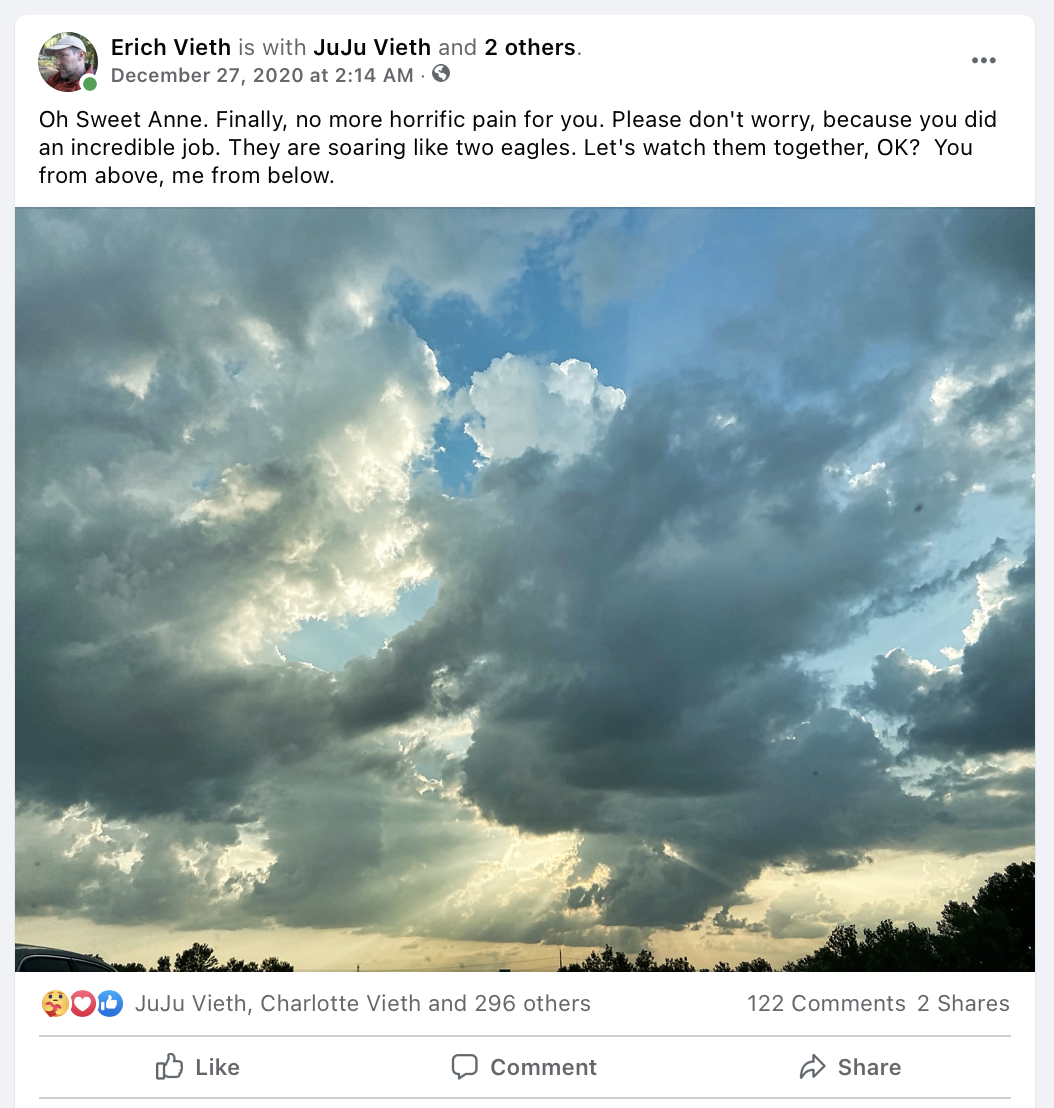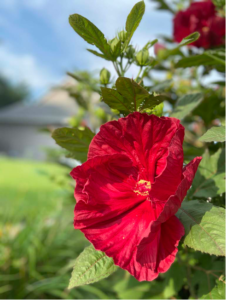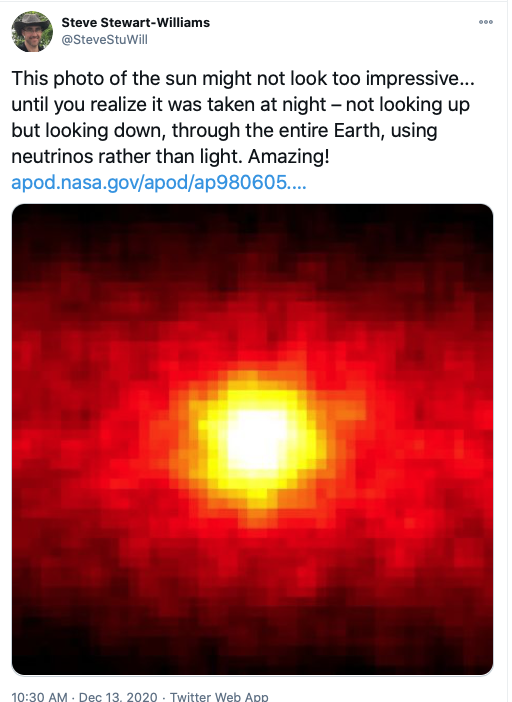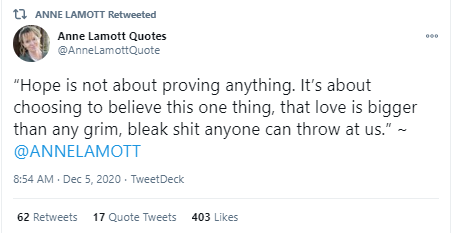The Upsides of Death
My family and I are currently working through a sudden death of someone central to all of us. Anne Octavia Jay, my ex-wife, suddenly died. For months, she was working through some medical issues that seemed surmountable, but then there was some extra-bad news. Then, about two weeks ago it started pouring bad news. This deluge included a sudden diagnosis of stage four cancer. On Christmas Eve, she suffered cardiac arrest, which led to forty minutes of CPR. In the ICU we learned what kind of damage can happen to a person's brain after forty minutes of CPR.
On the day after Christmas, my two young adult daughters and I gathered around Anne in the ICU to say our goodbyes. I learned that for a patient who has suffered this sort of damage, the fact that she occasionally opened her eyes means nothing at all. I learned what "comfort care" means. I am learning what it means to be the only surviving parent. I am learning how hard it can be to lose a parent. I am learning the awkwardness of being an ex-spouse who loses one's ex-spouse. What am I to be called? An "ex-widower"? What is the proper name for a person in my position, someone who still cared deeply for my deceased ex but who feels awkward because our marriage fell apart and we divorced each other?
I don't really have an end in mind for this post. Mostly, I'm emoting, but I wanted to share that I was particularly right about one thing. I've always assumed that one can use most "bad" events as good experiences, not just as good learning experiences. We the survivors have learned a lot together. I now know how to be a better friend to other people who have lost their loved ones. I now know better how to appreciate the complexity of the human body. We shouldn't be surprised when our bodies don't work; rather, we should be more more surprised that they ever actually work, given their mind-boggling complexity. I've learned to appreciate the human heart. Anne's heart faithfully beat for 59 years, which is a stunning achievement regularly exceeded by the heart-beating streaks of countless other people such as me (I'm in my 60's).
Mostly, I've learned to appreciate the importance of community. I've seen many dozens of people come out of the woodwork to offer comfort and assistance for my daughters and me in many major and minor ways. I now have increased respect for the way healthcare workers treat the family of dying patients. I've learned to appreciate straight talk from these professionals. I've learned to appreciate the patience and kindness of all the people at the cremation service we are using. We are surrounded by good-hearted people, including countless friends and relatives. They are everywhere. They are constantly bringing us flowers and soup and snacks and offers of ever-more help. It has been humbling.
We are in our George Bailey moment and people are running to our rescue in droves to tell us that we are not alone. It feels wonderful. I know that the hard part will be when all of the adrenaline is gone and when my daughters and I will experience unrelenting emptiness. That leads me to also appreciate the many friends and professionals who offer grief counseling individually and in groups.
Death in one's family can be one of the better ways to learn what it means to live a good life. And to paraphrase Tim McGraw, I have better learned to live like I am dying.
I'll end with a Facebook tribute I created for Anne. More than anything else, she wanted to make sure her children were OK. This was her prime directive. My daughters are working through this with me and I am strongly convinced that we will be ultimately be OK as we continue our life journeys stronger and wiser. Thanks for reading through to the end.


 They show up in the park with their own styles of clothing, music, food, games and language, even now as the weather is turning colder. It is an especially beautiful thing to behold the families at play, parents and their little children.
[More . . .]
They show up in the park with their own styles of clothing, music, food, games and language, even now as the weather is turning colder. It is an especially beautiful thing to behold the families at play, parents and their little children.
[More . . .] 
